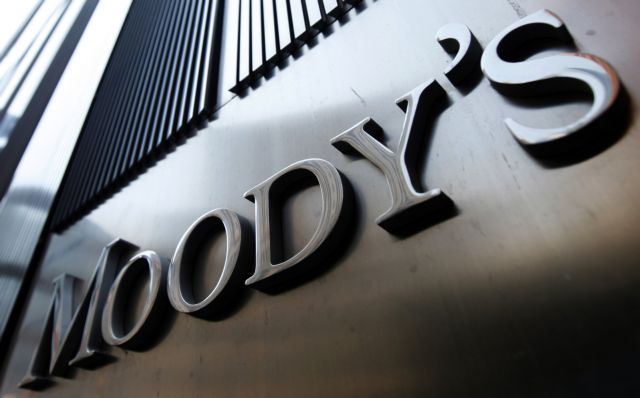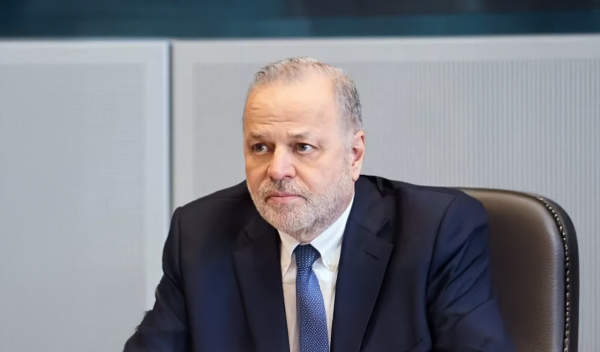
Moody’s sees benefits but also risks from the increased lending of commercial banks by the European Central Bank’s long-term financing program, which is at historically high levels, with Greek banks remaining the largest borrowers in terms of assets (Targeted Longer-Term Refinancing Operations – TLTRO capital corresponds to 14% of assets).
The rating agency believes that the increase in bank lending by the ECB leads to higher profits in the short term but also to long-term risks. Moody’s notes that it takes into account the dependence of Eurozone banks on cheap ECB financing when analyzing underlying credit trends.
Lending by Eurozone banks under the TLTRO mechanism almost quadrupled during the pandemic, reaching 2.2 trillion euros in June this year, from about 600 billion at the end of 2019, an amount corresponding to 6% of the banks’ assets , from 2% at the end of 2019. Moody’s reported that the countries of southern Europe (Italy, Greece, Spain, and Portugal) are the biggest beneficiaries of the program, which first appeared in 2010 to provide liquidity support to the banking system during the debt crisis. Since the start of the pandemic, however, core banks have begun participating en masse in the program, with French, Italian, and German banks dramatically increasing their lending, to € 450 billion, € 440 billion and $ 420 billion in new debt, respectively.
With the TLTRO program, the ECB provides long-term loans to banks at favorable costs.
Moody’s does not consider the high use of TLTRO to be a sign of underfunding, however, in some cases the significant use of TLTRO funds may make banks’ financial figures less representative of their true position.
Latest News

Fitch Ratings Upgrades the Four Greek Systemic Banks
NBG’s upgrade reflects the bank’s ongoing improvements in its credit profile, Fitch notes in its report, including strong profitability, a reduction in non-performing exposures (NPEs), and lower credit losses

Trump to Announce Sweeping New Tariffs Wednesday, Global Retaliation Expected
With Trump's announcement just hours away, markets, businesses, and foreign governments are bracing for the fallout of one of the most aggressive shifts in U.S. trade policy in decades.

Inflation in Greece at 3.1% in March, Eurostat Reports
Average inflation in the eurozone settled at 2.2%, compared to 2.3% in February

Greece’s Unemployment Rate Drops to 8.6% in February
Despite the overall decline, unemployment remains higher among women and young people.

Jerry Kalogiratos Highlights Key Role of Energy Transition and Data Demand in LNG Outlook
Energy transition and the prospects of LNG were discussed at Capital Link’s 19th Annual International Maritime Forum, during a panel discussion with Jerry Kalogiratos (Capital Clean Energy Carriers Corp.)

Santorini Safe and Ready for a Dynamic Tourism Season
Authenticity, cultural heritage, and genuine experiences at the center of Santorini's new promotional campaign

Electricity Bills: Greece Announces Reduced Tariffs Schedule
Greece will now offer lower electricity rates between 11:00-15:00 and 02:00-04:00

Chevron Confirms Eyeing Natural Gas Exploration South of Crete
Chevron recently declared its intent to explore a third area, south of the Peloponnese.

Evangelos Marinakis: A time of change from which shipping can benefit
Speaking at the 19th Annual Capital Link International Shipping Forum Evangelos Marinakis stressed the challenges that shipping faces today

Retail Trade in Greece Up 2.5% in December 2024: ELSTAT
In January 2025, the General Turnover Index recorded a 2.5% increase compared to January 2024. Compared to December 2024, it recorded a significant decline of 18.4%











![Τουρκία: Μεγάλες βλέψεις για παραγωγή ηλεκτρικών οχημάτων [γράφημα]](https://www.ot.gr/wp-content/uploads/2025/03/ot_turkish_autos-90x90.png)











![ΕΛΣΤΑΤ: Αυξήθηκε η οικοδομική δραστηριότητα κατά 15,6% το Δεκέμβριο [πίνακες]](https://www.ot.gr/wp-content/uploads/2025/03/DSC9655-2-1024x569-1-90x90.jpg)

















 Αριθμός Πιστοποίησης
Αριθμός Πιστοποίησης